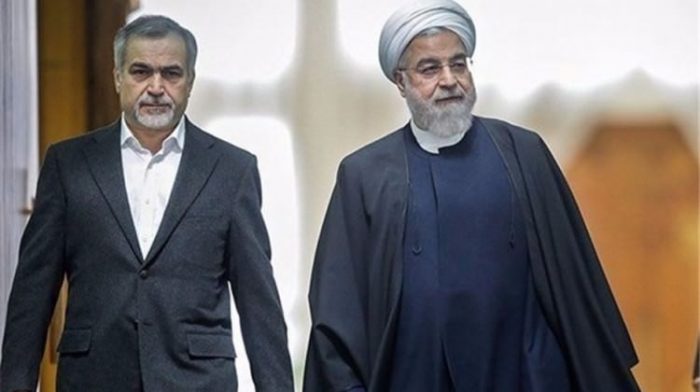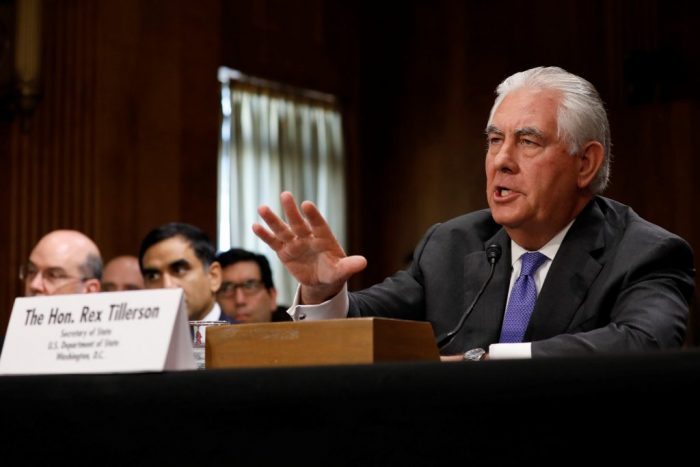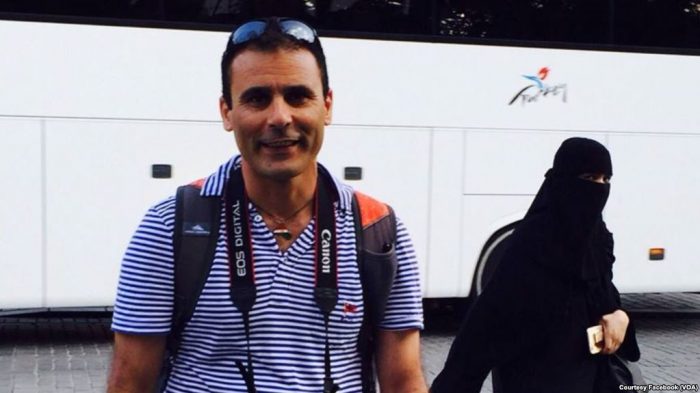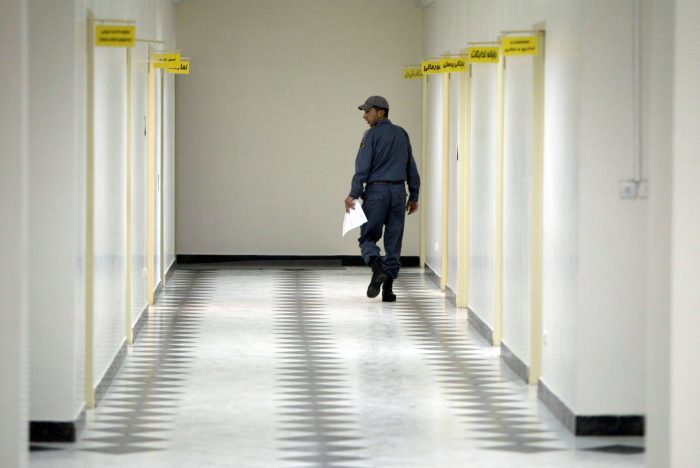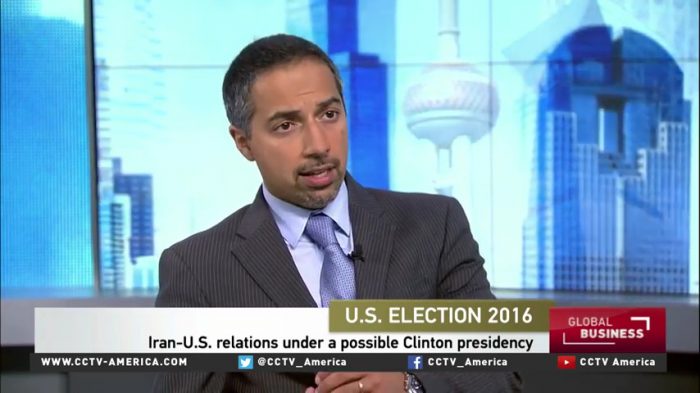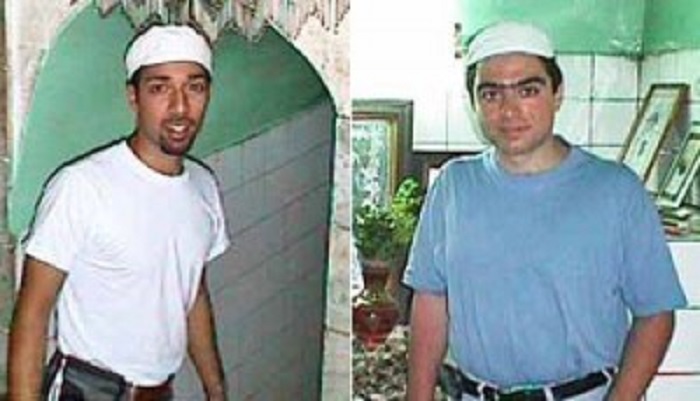
Trita Parsi traveled with Siamak Namazi to Isfahan, Iran’s third largest city, in August 2000. They also toured the Zoroastrian “Fire of Victory” Temple in Yazd.
At the time, Siamak was living in Tehran, working for Atieh Bahar, a consultant company with close ties to the government.
In 1999, Parsi and Siamak co-authored a paper that recommended setting up a lobbying organization in Washington to influence US-Iran policy. Siamak took a sabbatical in 2005 to complete a fellowship at the Woodrow Wilson Center in Washington, DC. While at the Center, Siamak helped Parsi formulate NIAC policies supportive of the Iranian regime.
In June 2001, just months after Parsi relocated to the US to begin work as Director of Development at the American-Iranian Council (AIC), he began formulating a plan to set up his own Washington-based NGO.
Assisting Parsi in the process was Siamak’s father, Baquer, who had established the NGO, Hamyaran, in Iran and had facilitated the participation of Parsi and Siamak at the Cypress conference in 1999.
Also involved in creating the new NGO was Abbas Edalat, an Iranian academic working in the UK who in 1999 had established the Science & Arts Foundation (SAF), an NGO to provide computers and internet services in schools in Iran.[1] In 2005 he founded the Campaign Against Sanctions and Military Intervention in Iran (CASMII), another NGO, to entice anti-war groups to support the mullahs’ political agenda.
Details of Parsi’s involvement with Baquer and Edalat were made public during the defamation lawsuit filed by Parsi and NIAC against Hassan Daioleslam in 2008.
The first available Parsi email, dated June 17, 2001, was sent to four Iranian Americans, all affiliated to Edalat’s SAF organization, and a US lawyer, about an upcoming conference call to discuss the structure of the new NGO. SAF had attracted many prominent and successful Iranian Americans who, in turn, were asked to assist Parsi set up the political NGO in Washington. The four Iranian Americans are:
- Payman Ababshahi – senior research scientist at the University of Washington’s Applied Physics Laboratory.
- Esmail Ghorbani – electrical engineer and founder of Enginuity Search.
- Susan Tahmasebi – women’s rights and civil society activist.
- Fereydoun Taslimi – Chief Technology Officer at PerformanceIT and founder of Informatics Sciences.
The lawyer, Brian L. Oliner, founded the charity, Children of Persia. In the June 17th email, Parsi listed five issues he wanted to discuss:
Lift sanctions or grant exemption for non-profits?
- 501C3 or Not?
- Extent of cooperation with other groups.
- When to go public?
- Importance of doing the groundwork in Congress.
Parsi said a “key decision” for the group was whether the new NGO should lobby to lift all economic sanctions on Iran or “simply lobby for an exemption for non-profits.” Parsi then lectured the Iranian Americans, misinforming them about the politics behind the sanctions. Parsi said:
It is important to keep the following in mind: The main purpose of the sanctions are not to halt Iran’s alleged attempts to acquire WMDs or halt its alleged support to terrorist groups. The main purpose is to constitute a political obstacle to a US-Iran dialogue and improved US-Iran dialogue and improved US-Iran relations. From the Israeli perspective (the sole force behind the lobby efforts to impose and now extend the sanctions), every step Washington takes toward Tehran is a step away from Tel Aviv.[2]
Parsi told the Iranian Americans the new NGO should have the ability to lobby every member of Congress:
In order to be successful, we must have the resources to meet with all offices on the Hill (app.535). We should be careful about giving the impression of being able to successfully carry through with our mission until we have gathered the necessary sources. [emphasis added][3]
After their conference call, Parsi distributed an email with the minutes of their conversation. During the call, the Iranian Americans said they preferred the NGO initially lobby for an exemption for non profits, rather than the removal of all sanctions.
Parsi and Edalat disagreed. On June 23, 2001, Parsi sent an email to the group, supporting Edalat’s proposal to have the NGO both lobby to remove sanctions, as well as seek an exemption for non-profits. Parsi wrote:
I think Prof. Edalat is right on point. Combining the two goals will also enable us to work with allies both within and outside Congress who perhaps would oppose an effort to just get the NGO exemption, as such a move might make the lifting of the sanctions altogether more difficult.[4]
Parsi discussed the contents of the minutes from their conference call.
There has been silence since the draft minutes of last week’s telephone conference was sent to the group for your review and approval. I assume everyone has been busy, but it would be good if we could finish the minutes by Tuesday so that we can follow Mr. Ba[qu]er Namazi’s instructions and sen[d] it to Amb. Bill Miller.[5] [emphasis added]
The email reveals that Baquer Namazi is the ringleader of the group, giving instructions to Parsi and the others. Parsi is thus working with Namazi, who has close ties to the Iranian regime, and whose family members work for one of the top consulting companies in Tehran with multiple links to government officials and ministries.
The email indicates Parsi also was working with William G. Miller, then an advisor for the Search for Common Ground and a member of the board of the American Iranian Council. He earlier had been a political officer at the US Consulate in Isfahan (1959-62) and Embassy in Tehran (1962-64).
On June 25, 2001, Parsi sent an email to Fereydoun Taslimi, one of the four Iranian Americans,
regarding the minutes of the conference call, which was copied to the other members of the group. Taslimi was not pleased with the draft minutes and wanted changes.
Parsi acknowledged to Taslimi that the group preferred to restrict lobbying for the new NGO to the removal of sanctions on non-profits:
Your point on giving NGO exemption priority is well taken. In the minutes, it currently states that a majority favors that but that we also saw the need for more research. That is my understanding of our meeting, please correct me if I am mistaken.[6]
Parsi said he would “add text regarding the [group’s] wish to keep things loose without an official organization, my apologies for forgetting to emphasize that more.” He also attempted to persuade the group to change their position, stating, “Few Congressmen will support a 1-3 (sic) loosely organized charitable organizations (sic) that are (sic) not even allowed to lobby in the first place.”[7]
Additional emails are unavailable to explain what happened next. When Parsi announced the establishment of NIAC in the spring of 2002, the four Iranian Americans who had participated in the discussions of its agenda were nowhere to be seen.
Two of the Iranian Americans – Abranshahi and Tahmasebi – were later named officers of the SAF branch in Maryland, along with Edalat.
Siamak Namazi’s brother in law, Bijan Khajdhpour, who is the head of Atieh International, became the Chairman of the Board of Trustees at SAF.
[1] Edalat set up a branch in New York City in 1999 and another branch in Rockville, Maryland, in 2003.
[2] Email from Trita Parsi, Conference Call material, June 17, 2001.
[3] Ibid.
[4] Email from Trita Parsi, Re: Conference Call minutes, June 23, 2001.
[5] Email from Trita Parsi, Re: Conference Call minutes, June 23, 2001.
[6] http://www.iranian-americans.com/docs/ned1/conferenceCall.pdf
[7] Ibid.
Read more about NIAC:
Bogus Memberships & Supporters
Survey
Lobbying
Iranians for International Cooperation
Defamation Lawsuit
People’s Mojahedin
Trita Parsi Biography
Parsi/Namazi Lobbying Plan
Parsi Links to Namazi & Iranian Regime
Collaborating with Iran’s Ambassador

